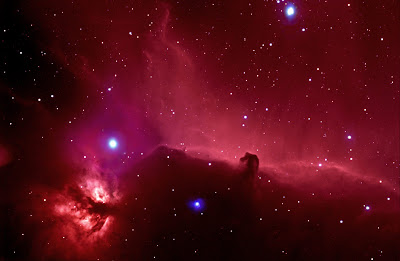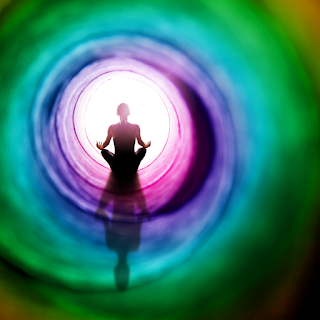The Names of God Part 2
If you read part 1 you might be wondering about the mantra I mentioned that has 8 different names of God.
It is: Gobinday Mukunday Udaaray Apaaray Hariang Kariang Nirnamay Akamay
It is usually translated as: Sustainer, Liberator, Enlgihtener, Infinite, Destroyer, Creator, Nameless, Desireless
I had someone ask me once about the last two and how they fit in with our (LDS) belief system. It is funny that one of the names of God is nameless. But when I think about it, it makes sense.
First, in the Book of Revelation (2:17) there is a promise that those who overcome will be given a white stone with a new name written "that no man knoweth, saving he that receiveth it." It is possible, that though God has many names, there are names we don't know and won't know.
Secondly, all the names of God are actually aspects of God. He is not just a Liberator or a Sustainer. I don't know if it is really possible for one name that can encompass all that he is?
Now about the last word in the mantra: Akamay is sometimes translated as Desireless, but I have also seen it translated as Pure Light.
The concept of being desireless I think has to do with being free of unhealthy attachments and desires. Christ definitely was and taught that principle. In fact, I wrote a whole essay on Christ's teachings of non-attachment in The Gift of Giving Life. I won't rewrite it here, but it's a goody. It's in the Pain chapter, if you wish to revisit it.
Chanting this mantra is said to have the power to break through deep seated blocks. It cleanses the subconscious mind and brings patience and compassion the person who meditates on it.
But this mantra by no means exhausts the names of God. There are hundreds more. But as I mention about, and I think this is the take away, is that all the names of God are actually attributes or aspects of His character.
My Muslim friend told there are 99 names of God in Islam. But in truth, they know that this is not all. She said, "We call on the name of God all the time. Whenever we make sounds, we are calling on God." For example, a moan in agony. Or a cry of delight. If you think about these sounds, they are both a call to God and an aspect of God.
I love that idea. It makes me think of a laboring woman and of baby talk so much differently.
In the Kundalini yoga meditation technology, there are different classes of mantras. All of them seem to invoke a name/attribute of God, but are used for different purposes.
For example,
All this is to say that the revelation I got about using the correct name of God for my specific request seems to be a theme. God works by laws and codes. I may not always understand them. But when I have the have the faith to follow the code, the results blow my hair back.
I'd love to hear your experiences with this.
It is: Gobinday Mukunday Udaaray Apaaray Hariang Kariang Nirnamay Akamay
It is usually translated as: Sustainer, Liberator, Enlgihtener, Infinite, Destroyer, Creator, Nameless, Desireless
I had someone ask me once about the last two and how they fit in with our (LDS) belief system. It is funny that one of the names of God is nameless. But when I think about it, it makes sense.
First, in the Book of Revelation (2:17) there is a promise that those who overcome will be given a white stone with a new name written "that no man knoweth, saving he that receiveth it." It is possible, that though God has many names, there are names we don't know and won't know.
Secondly, all the names of God are actually aspects of God. He is not just a Liberator or a Sustainer. I don't know if it is really possible for one name that can encompass all that he is?
Now about the last word in the mantra: Akamay is sometimes translated as Desireless, but I have also seen it translated as Pure Light.
The concept of being desireless I think has to do with being free of unhealthy attachments and desires. Christ definitely was and taught that principle. In fact, I wrote a whole essay on Christ's teachings of non-attachment in The Gift of Giving Life. I won't rewrite it here, but it's a goody. It's in the Pain chapter, if you wish to revisit it.
Chanting this mantra is said to have the power to break through deep seated blocks. It cleanses the subconscious mind and brings patience and compassion the person who meditates on it.
But this mantra by no means exhausts the names of God. There are hundreds more. But as I mention about, and I think this is the take away, is that all the names of God are actually attributes or aspects of His character.
My Muslim friend told there are 99 names of God in Islam. But in truth, they know that this is not all. She said, "We call on the name of God all the time. Whenever we make sounds, we are calling on God." For example, a moan in agony. Or a cry of delight. If you think about these sounds, they are both a call to God and an aspect of God.
I love that idea. It makes me think of a laboring woman and of baby talk so much differently.
In the Kundalini yoga meditation technology, there are different classes of mantras. All of them seem to invoke a name/attribute of God, but are used for different purposes.
For example,
Har-- A base mantra, concerned with the lower chakras. Good for earthly stuff, including prosperity. Har is the generating aspect of god.
Wahe Guru--One of the highest mantras. It expresses the wonder/ecstasy of Good and being one with God. It can be used for lots of things, but it is a heavenly mantra, concerned more with the upper chakras.
The Adi Shakti mantra- Calls on the creative aspect of God. Great for creativity, women, female stuff, intuition, etc.
All this is to say that the revelation I got about using the correct name of God for my specific request seems to be a theme. God works by laws and codes. I may not always understand them. But when I have the have the faith to follow the code, the results blow my hair back.
I'd love to hear your experiences with this.





I believe in what you are teaching here. When I was able to take my yoga teacher certification, the unit that most aligned with me was meditation and mantra. The words combined with the sound of the body was electrifying! I also agree with your theory of words and names of power. They are linked with the moment in which they were given.
ReplyDeleteI haven't practice for a while because of the movement of my life, but through your words I have reawakened the desire to reconnect through voice and key words.
They are powerful indeed. I thank you.
Stephanie